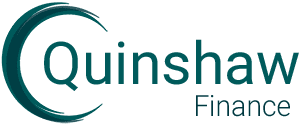Quinshaw Finance is offering unregulated bonds paying returns as follows:
- 4.58% for a 1 year term
- 9.25% per year for a 3 year term
- 11.58% per year for a 5 year term
Via its Google search result and brochure, the company claims to offer “secure property high yield bonds” and that “investor protection is our number 1 priority”.
Funds raised are to be used to provide short-term bridging finance to property developers.
Who are Quinshaw?
No details of who is behind the business are provided by Quinshaw’s website.
Companies House shows that Quinshaw Group Limited is wholly owned by its sole director, Paul Hopeton Daye, who took over and renamed an existing company called Nobleleigh Limited in May 2019.
Partly due to the lack of information provided, I was unable to put together any kind of biography for Daye.
Quinshaw Finance filed its first accounts to June 2019 shortly after Daye took over the company, which show £3 million in net assets. These accounts were however unaudited. Moreover they appear to predate the offering of Quinshaw’s bonds, as they show almost no creditors.
How safe is the investment?
Despite Quinshaw’s claim that its bonds are “secure”, the reality is that these are loans to a small unlisted company and carry an inherent risk of 100% loss.
Secured lending on property is not risk-free as there is a risk that if the underlying borrower defaults, the security cannot be sold for enough to cover the loan.
Investors in asset-backed loans have been known to lose 100% of their money when it turned out that there were not enough assets left to pay investors after paying the insolvency administrator (who always stands first in the queue).
We are not in any sense implying that the same will happen to investors in Quinshaw, only illustrating the risk that is inherent in any loan note even when it is a secured loan.
If investors plan to rely on this security, it is essential that they hire professional due diligence specialists (working for themselves, not Quinshaw) to confirm that in the event of a default, the assets of Quinshaw would be valuable and liquid enough to compensate all investors. Investors should not simply rely on what Quinshaw tells them about their assets.
Note that while Quinshaw states that it takes security on properties when it lends out investors’ money to property developers, the assets that Quinshaw itself holds will consist of short term loans, not property.
If investors are relying on the assumption that Quinshaw’s loans are secured on property valuable enough to repay investors in the event that Quinshaw’s borrowers failed to repay it, they will need to undertake a full due diligence investigation into Quinshaw’s loan book and the value of the properties it is secured on.
Quinshaw claims in its brochure that it has a “100% Track Record of repaying bondholders all their capital”.
This claim is always meaningless – and especially meaningless for Quinshaw given they only started taking investments a few months ago.
No bondholders have been repaid all their capital yet because Quinshaw’s first investors won’t be due to be repaid their capital until the summer of 2020 at the absolute earliest. (Based on the company’s minimum investment being one year and the fact that the company’s accounts show it had raised little or nothing from investors as at 30 June 2019.)
Should I invest in Quinshaw Finance?
This blog does not give financial advice. The following are statements of publicly available facts or widely accepted investment principles, not a personalised recommendation. Investors should consult a regulated independent financial adviser if they are in any doubt.
As with any individual loan note to an unlisted startup company, this investment is only suitable for sophisticated and/or high net worth investors who have a substantial existing portfolio and are prepared to risk 100% loss of their money.
Any investment offering returns of up to 11.58% per year is inherently very high risk. As an individual, illiquid security with a risk of total and permanent loss, Quinshaw’s loan notes are much higher risk than a mainstream diversified stockmarket fund.
Before investing investors should ask themselves:
- How would I feel if the investment defaulted and I lost 100% of my money?
- Do I have a sufficiently large portfolio that the loss of 100% of my investment would not damage me financially?
- Have I conducted due diligence to ensure the asset-backed security can be relied on?
If you are looking for a “secure” investment, you should not invest in corporate loans with a risk of 100% loss.

